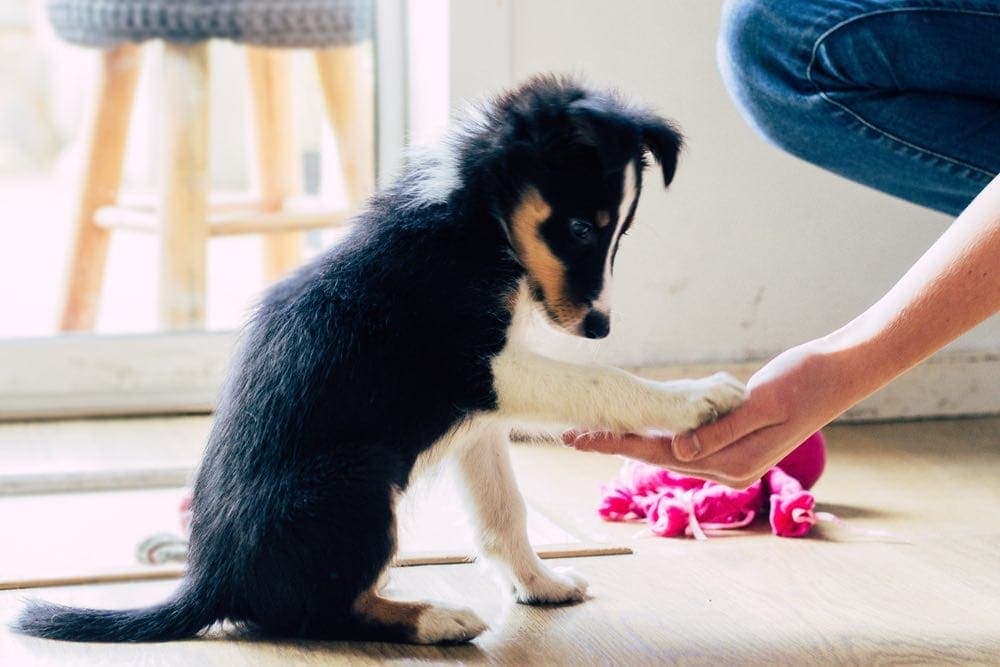If you have your heart set on a particular breed of dog — especially a rare or purebred one — then you’ll almost certainly have to buy a puppy through a breeder rather than adopting from the pound.
However, not all breeders are created equal. The world is full of backyard breeders and puppy mills, and you want to avoid both of these at all costs. Not only are the dogs in these facilities treated terribly, but they can also be prone to health and behavioral problems later in life.
Most people don’t have the first clue as to how to find a reputable breeder, though. To help with this, we’ve put together a step-by-step guide for finding a dog breeder whom you can trust.
After all, your next best friend is counting on you.
Top 7 Tips to Find Reputable Dog Breeders:
1. Ask for Recommendations
Picking a breeder based on a Google search or phone book listing is a recipe for disaster. You might get lucky, but you’re definitely rolling the dice with this approach.
Instead, ask around for recommendations, especially from well-qualified people, like your veterinarian. They’ll have a better idea of whom to trust than Google will.
If you know of anyone who bought the type of dog that you want from a breeder, ask them as well. You can also ask about how their dogs turned out — whether they had any health or behavioral problems, for instance.
You can also use resources like the AKC’s breeder referral program. The club has an official person for each breed, whose job is to keep a registry of accredited breeders. The AKC takes this job seriously, so their breeders stand a good chance of running a reputable organization (but they’ll also likely be more expensive).
This part may be a bit tedious, but any research you do ahead of time will pay huge dividends in the long run.

2. Check Referrals
Once you start to zero in on a breeder, you should do your homework on them. This means asking for — and checking — their referrals.
Reputable breeders will keep a log of every dog they’ve adopted out and to whom. After all, if they truly care about their dogs, they’ll want to make sure they’re well taken care of even after they leave the breeding facility.
Now, not every person who buys from a breeder is willing to be contacted by another prospective buyer, but there should be some who are. Many people who are truly satisfied with their new dogs can’t wait to talk about them to anyone, including strangers.
If the breeder you’re considering can’t provide you with a list of references, that’s a huge red flag. It potentially means that they know their buyers won’t provide glowing reviews.
Then again, some breeders will provide referrals because they don’t believe that you’ll actually follow up with them. Be sure to prove those breeders wrong.
3. Visit Their Facilities
Referrals are all well and good, but you won’t truly know what you’re getting into until you visit the breeder’s facilities in person.
Simply asking to visit their facilities should clue you in as to the trustworthiness of the breeder. A reputable breeder will welcome a visit, whereas a shady one will come up with all manner of excuses as to why a tour is impossible.
There are a few things that you should look for on your visit. The general condition of the facilities is a huge giveaway as to how the dogs are treated. The grounds should be clean, and the animals should be kept in satisfactory living conditions (as opposed to crammed in overcrowded cages).
Of course, a breeder can always clean up before you arrive, so there’s another telltale sign that you should look for: how the dogs behave. Puppies should be playful and curious for the most part, so if they look timid or jittery, it could mean they’re being mistreated. Pay attention to how the dogs and breeder interact in particular, and ask to see the dog’s parents if possible.
In some cases, you may need to buy from a breeder who lives far away from you, making an in-person visit impractical. Fortunately, we live in the age of Skype and FaceTime, so you should at least be able to arrange a virtual tour.
4. Ask How Many Breeds They Work With
Most reputable breeders focus on just one or two breeds. They’re more concerned with perfecting a particular breed and learning everything about it than branching out into a bunch of different breeds.
Puppy mills take the opposite approach. They’re like a big box store for dogs — all they care about is selling you a puppy, and the more breeds they have on hand, the better their odds of making a sale.
The fact is, being a successful breeder requires knowing as much about your chosen breed as possible. You need to know how to raise them properly, what their specific nutritional needs are, what behavioral problems they’re likely to develop, and so on.
You can’t possibly learn everything that there is to learn about a dozen breeds, so the fact that they have a dozen breeds on hand is a good indicator that they don’t really care about any of them.

5. Get a Medical Screening
You wouldn’t buy a car without seeing its vehicle history, and you shouldn’t buy a dog that could potentially be a lemon either. Ask the breeder to provide proof that the puppy is in good health.
They should provide documentation showing that the dog has gotten all their relevant vaccinations, as well as proof that a veterinarian has deemed them to be in good health. If the dog has suffered any injuries or illnesses, those should be disclosed as well.
A reputable breeder will also brief you on what kinds of medical conditions that the breed is prone to developing. This can help you understand what you’re getting into, while also allowing you to tailor your dog’s care so as to reduce the risk of developing those conditions.
A shady breeder will want to hide as much information from you as possible. If it’s like pulling teeth to learn about their puppies, that’s a bad sign.
6. Get All the Relevant Paperwork
Reputable breeders take great pride in their dogs. They want to show them off, so if you ask for things like proof of pedigree, they’ll be more than happy to oblige. Many will also offer detailed maps of the dog’s bloodline.
Beyond pedigree information, you should also sign a puppy contract. This is a legally-binding contract that outlines what’s expected of both you and the breeder. In the case of dogs with prestigious bloodlines, the breeder may want to reserve the right to check in on the dog or have a say in when and how they’re bred.
Good breeders will almost always insist on a return-to-breeder clause as well. This means that if your dog needs to be rehomed for any reason, the breeder will be notified. This allows them to keep tabs on their dogs and ensure that they’re placed in loving homes.
Some breeders also offer health guarantees. That means they’ll guarantee against certain conditions up to a certain age, provided that the buyer takes proper care of the dog. If the dog develops said condition, anyway, the breeder may offer to replace the dog or refund the buyer’s money.
As you might expect, shady breeders couldn’t care less about what happens to their dogs after they’re sold — and they’ll never offer you your money back. If they don’t offer you a bunch of legal documents at the time of purchase, you should probably keep your money in your pocket.

7. Take Your Time
This may be the most difficult step of all. It’s virtually impossible not to fall in love with a puppy from the first moment you lay eyes on them, but you should take your time during this whole process. It’s more important to make the right decision than it is to bring a dog home immediately.
In fact, most reputable breeders won’t even let you bring home a puppy until they’re a few months old. This allows the breeder to retain control of the crucial first months, so they can be assured that the dog starts life off on the right paw. If a breeder lets you take a dog home the same day you meet them, it’s a red flag.
Above all, remember that there are quite a few breeders out there, so don’t ignore your gut if it’s telling you something is fishy. It’s always better to walk away and find another breeder to do business with than to support a puppy mill.
Good Luck
Finding a reputable breeder is extremely important, and while the process may seem daunting, it’s really not that bad. With the tips outlined above, you should be able to see right through any dishonest characters whom you encounter on your search.
By following the instructions above and avoiding backyard breeders, you’re more likely to bring home a healthy, happy puppy. More importantly, though, you’ve deprived a villain of your hard-earned money and hopefully, put them one step closer to going out of business.
Other helpful tips when adopting a new pup:
- 15 Questions to Ask a Dog Breeder
- 25 Essential Items for Your Dog’s First Aid Kit
- 6 Crucial Tips for your Puppy’s First Night at Home
Featured Image: Kochmarjova, Shutterstock







